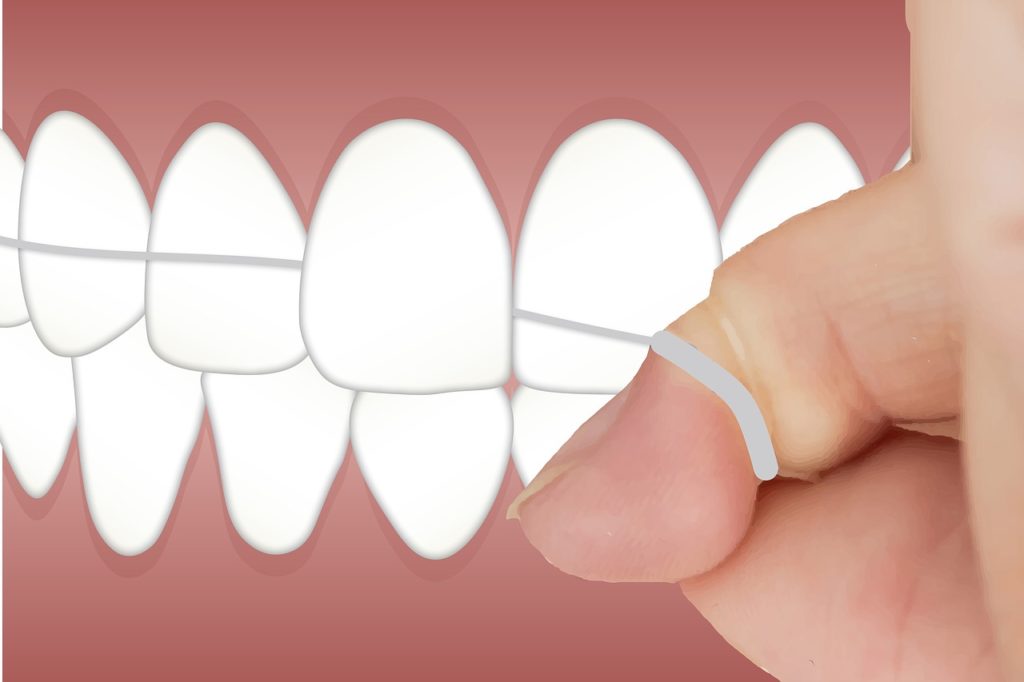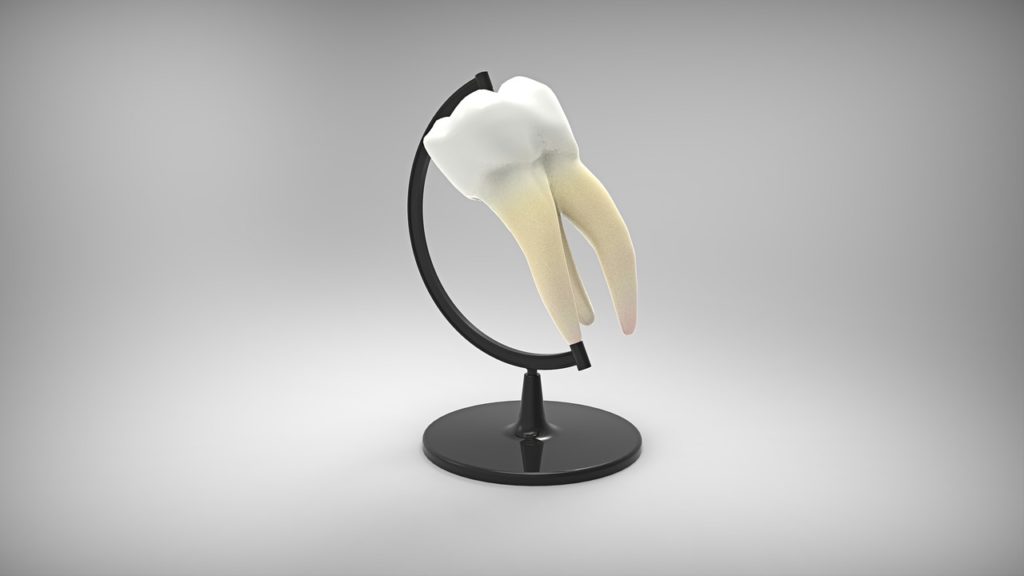Wisdom teeth are the last set of molars that you’ll grow around the ages of 17 to 25 years. Not everyone has wisdom teeth, which are also called third molars. Many people go through life without seeing them. Or, the molars could grow only in the upper jaw or the lower jaw. Like any other teeth, you could get wisdom tooth infection that results in pain and discomfort. These molars can also push against the neighboring teeth and cause them to slip out of alignment. To help you, dentists at our clinic at Calgary may conduct a thorough examination, and then, suggest that you go for wisdom tooth removal. Even if you don’t have wisdom tooth pain, our expert doctors may recommend that you opt for getting these molars extracted to prevent the likelihood of problems in the future.
You Could Have Wisdom Tooth Pain Because of Various Reasons
You have a higher possibility of developing wisdom tooth infection than problems with any of the other teeth. Here’s why:
- Since wisdom teeth are at the back of your mouth, reaching them with a toothbrush and dental floss can be tricky. Often times, food particles get stuck in the spaces between the gums and teeth. Eventually, bacteria can cause caries and eat away at the dental enamel.
- Wisdom teeth do not always emerge vertically like the other teeth. Sometimes, they emerge at an angle pointing toward the second molars or pointing toward the back of the mouth.
- Some wisdom teeth lie horizontally inside the gums. Dentists have a specific term for them, “impacted teeth.”
- Wisdom teeth can also emerge partially from the gums with only a section of the crown visible, which is why they develop decay easily
- Smaller sizes of the jawbones make it impossible for the third molars to grow in proper alignment with the rest of the dental structure.
Impacted Teeth Can Cause Several Problems in the Oral Cavity
Aside from the risk of wisdom tooth infection, you can develop other problems in the mouth. Like, for instance,
- Impacted teeth are more likely to cause infections in the areas of the gums where they are located. That’s when you’ll develop wisdom teeth infection symptoms. In all, there are around seven different types of known bacteria that can affect your third molars.
- If the wisdom tooth grows in a sac inside the jawbone, a cyst can form. This sac can fill with fluid and cause damage to the bone, nerves, and other surrounding tissues. In rare cases, a tumor may form around the cyst. Although such tumors are typically benign and not likely to develop into cancer, you’ll still need to get the growth removed.
- You could develop pericoronitis in the gums around the impacted tooth if it is only partially erupted. Pericoronitis is a painful inflammatory condition and needs treatment.
- Problems with overcrowding the other teeth may need you to go in for other solutions. For instance, you might need Invisalign braces to correct the resulting misalignment.
Even if your third molars are growing normally, dentists ask you to come in for regular cleaning and examination. You’ll also receive directions to prevent wisdom tooth infection. For instance, reaching inside the mouth to clean the back teeth properly.

Wisdom Teeth Infection Symptoms to Look For
Should you visit our dental clinic in Calgary regularly, the doctors will likely a proper examination of your dental structure. They may also take X-rays to check for the placement of the wisdom teeth and advise you if they think you need preventive treatment. Even so, if you develop wisdom tooth infection, you’ll have symptoms such as:
- Stiffness accompanied by pain and difficulty in opening your mouth
- Pain in the jaw, which can be accompanied by swelling
- Inflamed and red gums
- Sore gums that bleed when brushing
- Severe swelling in the gum tissue which results in the skin getting caught between your teeth when you bite down
- Bad taste in the mouth
- Bad breath
- Unpleasant discharge like a white fluid oozing from the gums around the wisdom tooth
- Fever that may or may not be accompanied by chills
- Sensitivity in the infected tooth
- Difficulty in breathing
- Nausea
- Headaches
In case the wisdom tooth infection worsens, you may have spasms in the jaw or swelling on one side of the face. Some patients may develop swollen lymph nodes under the chin area.
Temporary Remedies for Relief from Pain
In case of pain from infections in the wisdom tooth, you can try a few home remedies before getting to emergency dentistry for proper treatment. For instance:
- Apply a cold compress on the side of the cheek where there is an infection. The cooling effect soothes inflammation and gives you temporary relief.
- Mix some table salt in a glass of warm water and swish it around the mouth. Spit it out and repeat a few times during the day. Salt works to slow down the growth of bacteria and helps with the discomfort for a while.
- Mix equal parts of water and hydrogen peroxide. Use the solution as a mouthwash taking care not to swallow. Hydrogen peroxide can get rid of some of the surface bacteria and give you partial relief from a wisdom tooth infection.
- Taking basic over-the-counter pain medications can also help with the pain. Check with your pharmacy for topical numbing gels like benzocaine. Apply using a Q-tip to soothe the pain for a short while until you can make an appointment at our dental clinic in Calgary.
- Dabbing clove oil helps since it is a natural antibacterial agent. You’ll find that the pain and swelling are easing.
How Basic Treatment for Infections in the Wisdom Teeth Progresses
Once you develop pericoronitis, the dentists at our clinic in Calgary will follow a step-by-step treatment procedure.
- The doctor removes the swollen flap of skin covering the partially erupted wisdom tooth.
- The area surrounding the affected tooth is cleaned to remove the accumulated particles of food.
- In case the area is infected, you’ll receive a course of antibiotics that also help with wisdom tooth pain.
- The dentist will give you a detailed dental hygiene plan which includes brushing and flossing properly. You’ll also learn how to swirl the water in the mouth carefully so that even the most minute food debris wash away.
- Once the pericoronitis is in control, your dentist will help you by evaluating the growth of the tooth. Chances are that the tooth will erupt normally and take its place with the other functional teeth in your mouth.
- Dentists formulate a plan for tooth extraction only if it is absolutely essential.
If you’re sensing the signs of wisdom tooth infection or pericoronitis, it is advisable that you look for treatment right away. If left untreated, the infection could spread to other sections of your mouth. Eventually, you’ll need to visit a dental clinic where oral surgeons perform surgery and give you antibiotics intravenously.

Treatment Depends on Wisdom Teeth Infection Symptoms
When you visit the dental clinic with a wisdom tooth infection, the doctor will recommend the right treatment according to the condition of your teeth.
- In case only a section of the crown is visible, the dentist may choose to trim the small tissue covering the crown. Once the excess tissue comes off, the tooth can continue to erupt normally and you can get relief from wisdom tooth pain. This option is chosen when the rest of the tooth is normal and growing properly.
- If the tooth has developed a cavity, treatment will proceed just as it would for the other teeth. After removing the diseased section of the tooth, the dentist will attach a dental crown similar to the original teeth in color and shape.
- In case the wisdom tooth is impacted and nudging the neighboring teeth, the doctor may have to extract it entirely. If the infection has spread to the other sections of the mouth, thorough cleaning is necessary to restore dental health.
- At times, the crowns of the third molars graze the side of the cheek or interfere with normal biting. If the caps are otherwise normal, the doctor may choose to file or trim the edges slightly and leave the tooth intact. Reducing the size of the cusp of the tooth slightly can make you comfortable. You’ll also avoid the risk of future wisdom tooth infection.
- In some cases, dentists opt to perform a coronectomy. This procedure involves removing only the top of the wisdom tooth leaving the root, nerves, and bone intact. This option is far less invasive and speeds up the recovery time after the dental surgery.
Do keep in mind that getting the wisdom tooth extracted is a fairly common procedure. Close to 85% of people go for the extraction at some time.
How Wisdom Tooth Removal Proceeds
In case you need to get the wisdom tooth pulled, the oral surgeons at our Calgary dental clinic will perform the procedure. Depending on your pain tolerance and comfort levels, you can request for general anesthesia or sedation dentistry. The doctor will put you in a semi-conscious state where you are aware of the surroundings, but unable to feel pain. A local anesthetic numbs the area during the surgery. If needed, the oral surgeon removes the tooth in sections to make sure that there is no injury to the jaw bone and nerves.
After Effects of Wisdom Tooth Surgery
Unless you have severe wisdom tooth pain, dentists recommend that you schedule the surgery for a time when you don’t have any pressing personal or work commitments. That’s because recovery can take some time. Immediate after-effects include:
- Numbness for a short while in the chin, lower lip, tongue, and jaw
- Feelings of weakness in the jaw bone
- Infection in the treatment site that can occur even after a couple of weeks
- Right after wisdom tooth extraction, the body responds by forming a blood clot in the empty space. Until the space does not fill with tissue, this clot protects the bone and nerve endings in the area. In the absence of the clot, the open nerves may begin to cause pain. You’ll start to feel wisdom tooth pain around one to three days after the procedure. This condition is called a dry socket.
- In case the empty socket fills with bacteria and food particles, you could develop pain and infection.
If you do have any wisdom teeth infection symptoms or pain, make sure to come back for a checkup. Typically, a round of antibiotics can take care of the problem.
Taking Precautions Ensures Normal Healing
When you opt for extraction, dentists talk to you about the necessary steps you must take so that healing progresses normally. For instance, you must stop smoking for proper blood circulation. You should also eat a nutritious diet and fuel your body with the essential nutrients. In case you’re taking chemotherapy, the doctor may advise that you delay oral surgery. That’s because the medications can cause a weakened immunity and raise your chances of developing wisdom tooth infection.
Wisdom teeth infection symptoms can be severe and cause extreme discomfort. It is advisable that you avoid the possibility and take care of the third molars beforehand. If you need to get an extraction, schedule the appointment before you develop major problems. Rest assured that in the hands of an expert dentist, the procedure can be done with only a rare chance of complications.
Would you like more information about how to take care of your wisdom teeth? Or, you may need advice because of existing pain. Contact us at Macleod Trail Dental, our clinic in Calgary and request an appointment with Dr. Jennifer Silver. She will make the best recommendations on a practical course of action. Use the Contact Us page to add your contact details, and we’ll get back to you. We also welcome queries over the phone. Our associates are happy to assist you. Call this number: (403) 253-1248 by clicking on it.
References:

